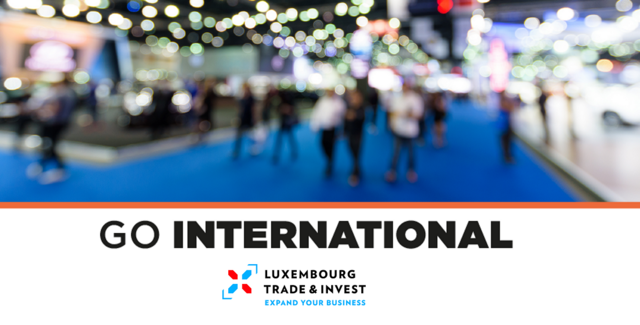
Chapitres
Saudi Arabia is the birthplace of Islam and home to Islam's two holiest shrines in Mecca and Medina. The king's official title is the Custodian of the Two Holy Mosques. The modern Saudi state was founded in 1932 by ABD AL-AZIZ bin Abd al-Rahman Al SAUD (Ibn Saud) after a 30-year campaign to unify most of the Arabian Peninsula. One of his male descendants rules the country today, as required by the country's 1992 Basic Law. Following Iraq's invasion of Kuwait in 1990, Saudi Arabia accepted the Kuwaiti royal family and 400,000 refugees while allowing Western and Arab troops to deploy on its soil for the liberation of Kuwait the following year. The continuing presence of foreign troops on Saudi soil after the liberation of Kuwait became a source of tension between the royal family and the public until all operational US troops left the country in 2003. Major terrorist attacks in May and November 2003 spurred a strong ongoing campaign against domestic terrorism and extremism.
From 2005 to 2015, King ABDALLAH incrementally modernized the Kingdom. Driven by personal ideology and political pragmatism, he introduced a series of social and economic initiatives, including expanding employment and social opportunities for women, attracting foreign investment, increasing the role of the private sector in the economy, and discouraging businesses from hiring foreign workers. Saudi Arabia saw some protests during the 2011 Arab Spring but not the level of bloodshed seen in protests elsewhere in the region. Shia Muslims in the Eastern Province protested primarily against the detention of political prisoners, endemic discrimination, and Bahraini and Saudi Government actions in Bahrain. Riyadh took a cautious but firm approach by arresting some protesters but releasing most of them quickly and by using its state-sponsored clerics to counter political and Islamist activism.
The government held its first-ever elections in 2005 and 2011, when Saudis went to the polls to elect municipal councilors. In December 2015, women were allowed to vote and stand as candidates for the first time in municipal council elections, with 19 women winning seats. King SALMAN bin Abd al-Aziz Al Saud ascended to the throne in 2015 and placed the first next-generation prince, MUHAMMAD BIN NAIF bin Abd al-Aziz Al Saud, in the line of succession as Crown Prince. He designated his son, MUHAMMAD BIN SALMAN bin Abd al-Aziz Al Saud, as the Deputy Crown Prince. In March 2015, Saudi Arabia led a coalition of 10 countries in a military campaign to restore the legitimate government of Yemen, which had been ousted by Huthi forces allied with former president ALI ABDULLAH al-Salih. The war in Yemen has drawn international criticism for civilian casualties and its effect on the country’s dire humanitarian situation. In December 2015, then Deputy Crown Prince MUHAMMAD BIN SALMAN announced Saudi Arabia would lead a 34-nation Islamic Coalition to fight terrorism (it has since grown to 41 nations). In May 2017, Saudi Arabia inaugurated the Global Center for Combatting Extremist Ideology (also known as "Etidal") as part of its ongoing efforts to counter violent extremism. In June 2017, King SALMAN elevated MUHAMMAD BIN SALMAN to Crown Prince. In September 2017, King SALMAN issued a royal decree recognizing the right of Saudi women to drive beginning in June 2018.
The country remains a leading producer of oil and natural gas and holds about 16% of the world's proven oil reserves as of 2015. The government continues to pursue economic reform and diversification, particularly since Saudi Arabia's accession to the WTO in 2005, and promotes foreign investment in the Kingdom. In April 2016, the Saudi government announced a broad set of socio-economic reforms, known as Vision 2030. Low global oil prices throughout 2015 and 2016 significantly lowered Saudi Arabia’s governmental revenue. In response, the government cut subsidies on water, electricity, and gasoline; reduced government employee compensation packages; and announced limited new land taxes. In coordination with OPEC and some key non-OPEC countries, Saudi Arabia agreed cut oil output in early 2017 to regulate supply and help elevate global prices.
Indicateurs clés
- Surface
- 2,149,690 km2
- Population
- 34,783,757 (July 2021 est.)
- Type de gouvernement
- absolute monarchy
- Langues
- Arabic (official)
- PIB
- $700.118 billion (2020 est.)
- Taux de croissance
- -4.1% (2020 est.)
- HDI
- 40
- Capitale
- Riyadh
Indicateurs macroéconomiques
Saudi Arabia has an oil-based economy with strong government controls over major economic activities. It possesses about 16% of the world's proven petroleum reserves, ranks as the largest exporter of petroleum, and plays a leading role in OPEC. The petroleum sector accounts for roughly 87% of budget revenues, 42% of GDP, and 90% of export earnings.
Saudi Arabia is encouraging the growth of the private sector in order to diversify its economy and to employ more Saudi nationals. Approximately 6 million foreign workers play an important role in the Saudi economy, particularly in the oil and service sectors; at the same time, however, Riyadh is struggling to reduce unemployment among its own nationals. Saudi officials are particularly focused on employing its large youth population.
In 2017, the Kingdom incurred a budget deficit estimated at 8.3% of GDP, which was financed by bond sales and drawing down reserves. Although the Kingdom can finance high deficits for several years by drawing down its considerable foreign assets or by borrowing, it has cut capital spending and reduced subsidies on electricity, water, and petroleum products and recently introduced a value-added tax of 5%. In January 2016, Crown Prince and Deputy Prime Minister MUHAMMAD BIN SALMAN announced that Saudi Arabia intends to list shares of its state-owned petroleum company, ARAMCO - another move to increase revenue and outside investment. The government has also looked at privatization and diversification of the economy more closely in the wake of a diminished oil market. Historically, Saudi Arabia has focused diversification efforts on power generation, telecommunications, natural gas exploration, and petrochemical sectors. More recently, the government has approached investors about expanding the role of the private sector in the health care, education and tourism industries. While Saudi Arabia has emphasized their goals of diversification for some time, current low oil prices may force the government to make more drastic changes ahead of their long-run timeline.
Source: The CIA World Factbook - Economic overview Saudi Arabia
IMF Statistics:
| Subject descriptor | 2021 | 2022 | 2023 | 2024 | 2025 |
|---|---|---|---|---|---|
|
Gross domestic product, constant prices Percent change (Units) |
5.075 |
7.486 |
-0.755 |
1.527 |
4.571 |
|
Gross domestic product, current prices U.S. dollars (Billions) |
874.157 |
1,108.571 |
1,067.583 |
1,100.706 |
1,136.580 |
|
Gross domestic product per capita, current prices U.S. dollars (Units) |
28,396.104 |
34,454.196 |
32,529.678 |
32,881.339 |
33,287.244 |
|
Inflation, average consumer prices Percent change (Units) |
3.063 |
2.474 |
2.327 |
1.744 |
1.888 |
|
Volume of imports of goods and services Percent change (Units) |
5.301 |
10.371 |
15.815 |
6.489 |
8.878 |
|
Volume of exports of goods and services Percent change (Units) |
5.674 |
24.112 |
-0.110 |
0.824 |
8.986 |
|
Unemployment rate Percent of total labor force (Units) |
6.125 |
4.875 |
3.775 |
n/a |
n/a |
|
Current account balance U.S. dollars (Billions) |
41.718 |
151.519 |
34.070 |
4.251 |
-20.742 |
|
Current account balance Percent of GDP (Units) |
4.772 |
13.668 |
3.191 |
0.386 |
-1.825 |
Source: IMF Statistics - Saudi Arabia
Le Luxembourg et le pays
Existing Conventions and Agreements
Non double taxation agreement
In order to promote international economic and financial relations in the interest of the Grand Duchy of Luxembourg, the Luxembourg government negotiates bilateral agreements for the avoidance of double taxation and prevent fiscal evasion with respect to Taxes on Income and on fortune with third countries.
- Convention from 07.05.2013 (Memorial 2014, A No.126, p.1816)
- Effective as of 01.01.2011 (Memorial 2014, A No.126, p.1816)
Air Services agreement
None
Source: Administration des contributions directes
Informations supplémentaires
Foreign Trade
The Statec Foreign Trade statistics provide information on the trade of goods - by product and by country. This information is collected respectively through the INTRASTAT declaration and on the basis of customs documents.
You can see the statistics on the website of the Statec.
Contact points in Saudi Arabia
Luxembourg is represented by Ambassade Royale des Pays-Bas à Riyad
Competent post for consular affairs by Ambassade du Royaume de Belgique à Riyad
Luxembourg Trade and Investment Office in Abu Dhabi
Mr Loic Bertoli
Appt. 6201, 62nd Floor
Nation Tower Residences, Corniche Road
P.O. Box 44909
Abu Dhabi
United Arab Emirates
Tel.: (+971) 24 91 24 46
E-Mail: ltio.abudhabi@mae.etat.lu
Source: Luxembourg Trade&Investment Office (LTIO)
Country risk as defined by Office du Ducroire for Saudi Arabia
Ducroire is the only credit insurer covering open account deals in over 200 countries. A rating on a scale from 1 to 7 shows the intensity of the political risk. Category 1 comprises countries with the lowest political risk and category 7 countries with the highest. Macroeconomics experts also assess the repayment climate for all buyers in a country.
Link: Ducroire Office - Country Risk for Saudi Arabia
Luxembourg for Business market entry guide to Saudi Arabia: Market entry guides are brochure series published by the Ministry of the Economy and Foreign. The series focuses on worldwide markets, industries and business environments, providing comprehensive and in-depth analysis and guidelines. The brochures cover all aspects relating to a market entry including the economic, financial and legal frameworks. The brochures are a vast knowledge pool, compiled into a practice oriented document with many tips and important addresses.
Other useful links
- CIA World factbook on Saudi Arabia
- L'Arabie Saudite sur le site de l'Awex
- Doing business in Saudi Arabia
- Arab-Belgian-Luxembourg Chamber of Commerce
- The Saudi Network
- Economic Freedom Saudi Arabia
- Das ist Saudi Arabien




